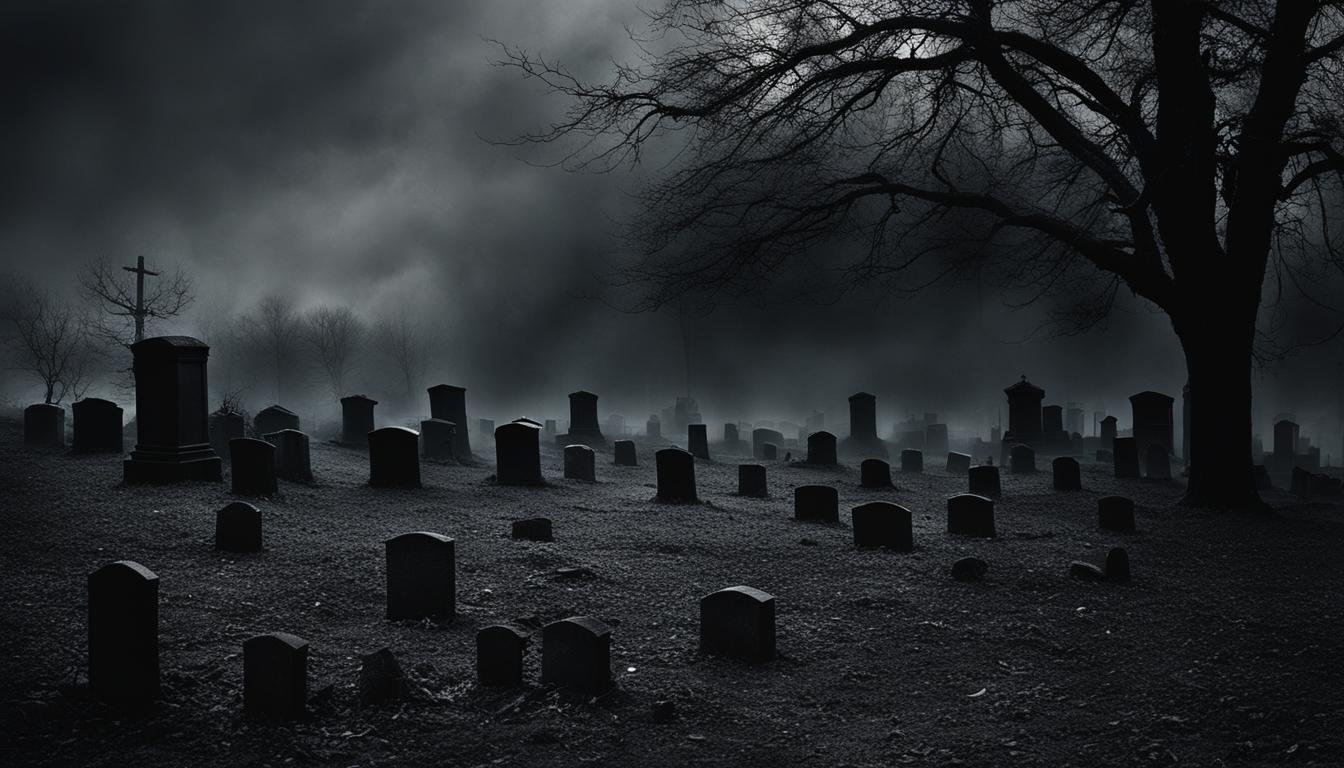If you’re a fan of chilling suspense and psychological thrillers, you won’t want to miss Stephen King’s riveting conclusion to the Bill Hodges trilogy, “End of Watch.” In this section, we’ll provide a comprehensive summary, infused with insightful analysis of the novel. Discover how King weaves a dark and captivating world with mind-bending twists and a satisfying resolution. Get ready to delve into the depths of the human psyche and uncover the sinister plans of the infamous Mercedes Killer, Brady Hartsfield.
Stephen King’s “End of Watch”: Overview
Stephen King’s “End of Watch” is the final book in the Bill Hodges trilogy, which includes “Mr. Mercedes” and “Finders Keepers.” In this psychological thriller, King delivers a gripping narrative that explores the dark side of humanity and the lengths people will go for justice and obsession.
The trilogy follows retired detective Bill Hodges as he tackles some of the most challenging cases of his career, including the Mercedes Killer, introduced in “Mr. Mercedes,” and the stolen manuscript in “Finders Keepers.” In “End of Watch,” Hodges and his allies must face their most formidable adversary yet – Brady Hartsfield, the Mercedes Killer, who has returned with new abilities.
The significance of the Mercedes Killer throughout the trilogy cannot be overstated, and the events that unfold in “End of Watch” provide a satisfying conclusion to the series. Fans of King’s work will appreciate his skillful weaving of multiple plotlines, intricate character development, and unexpected twists and turns.
Characters in “End of Watch”
Stephen King’s “End of Watch” introduces the reader to a cast of compelling characters, each with their own unique role in the story. First and foremost is the relentless retired detective Bill Hodges, who leads the charge against the nefarious Brady Hartsfield. Joining him is the brilliant but eccentric Holly Gibney, a fan-favorite character from the previous books in the Bill Hodges trilogy. Also pivotal to the narrative is Brady Hartsfield himself, whose sinister plans threaten to take over the minds of innocent victims. Finally, we have the loyal friend and assistant of Bill Hodges, Jerome Robinson, who proves to be an invaluable ally in the fight against evil.
The characters in “End of Watch” each play a vital role in the captivating plot, offering readers a multifaceted and layered story that is quintessentially Stephen King. Whether you’re rooting for the heroes or fascinated by the villains, there’s no denying the impact that these characters have on the narrative.
Plot Summary of “End of Watch”
In “End of Watch,” Brady Hartsfield, the main antagonist from the first book of the Bill Hodges trilogy, seems to be in a vegetative state in Room 217 of Lakes Region Traumatic Brain Injury Clinic. However, he develops new abilities to control minds and soon discovers a sinister, mind-bending plan that will allow him to exact revenge on the people who put him behind bars.
Hartsfield makes contact with a willingness to follow his instructions from an unlikely source, and worse still, he has found a way to communicate secretly with nearly anyone, making his task easier. Brady’s ultimate plan is the mass murder of several thousand people attending a pop concert in a sports stadium by hacking into the concert’s PA system.
With help from Holly Gibney, Jerome Robinson, and Barbara Robinson, Hodges races against time to stop Hartsfield and his deadly plan.

Themes Explored in “End of Watch”
In “End of Watch,” Stephen King delves deep into the human psyche and examines the darkness that resides within. One of the central themes of the novel is obsession – the intense and often destructive pursuit of a goal or desire. Brady Hartsfield’s obsession with revenge and his sinister plan to achieve it is a prime example of this theme in action.
The pursuit of justice is another central theme, as Bill Hodges and his allies work tirelessly to stop Brady and prevent his twisted plans from coming to fruition. Their fight for justice is a reflection of the tension between law and order and the individual desire for retribution.
Finally, “End of Watch” touches on the battle against personal demons. Every character in the novel has their own internal struggles, from Bill’s battle with depression to Holly’s OCD. These personal demons not only add depth and complexity to the characters but also serve as a reminder that even the strongest and most capable among us often carry secret burdens.
The exploration of these themes in “End of Watch” makes for a thought-provoking and emotionally charged reading experience that stays with readers long after the final page.
Writing Style and Language in “End of Watch”
The writing style in “End of Watch” is a testament to Stephen King’s skill as a writer. King is known for his atmospheric and suspenseful prose, and “End of Watch” is no exception. Every sentence is crafted to keep readers on the edge of their seats, eagerly turning pages to find out what happens next.
King’s use of language is both vivid and evocative. He paints a detailed picture of each scene, immersing readers in the world he has created. From the small, everyday details to the high-stakes action, everything is described in a way that brings it to life.
The result is a novel that is as gripping as it is emotionally resonant. Every twist and turn is expertly executed, building tension to a fever pitch before finally releasing it in a satisfying conclusion.
King’s Prose
One of the hallmarks of King’s writing style is his use of language. His prose is often vivid and poetic, with a rhythm and flow that draws readers in. Whether describing a character’s emotional state or a vivid action scene, King’s use of language is always masterful and affecting.
Atmospheric and Suspenseful
“End of Watch” is a novel that is steeped in atmosphere. King’s descriptions of the setting are vivid and gripping, evoking a sense of place that draws readers in. Whether it’s the quiet streets of a small town or the bustling chaos of a hospital, every location is described in a way that makes it feel real.
The suspense in the novel is expertly crafted, with King slowly building tension over the course of the story. Every moment feels fraught with danger, and readers are never quite sure what’s going to happen next. This sense of uncertainty and unease is what makes “End of Watch” such a thrilling read.
Critical Reception and Impact of “End of Watch”
Upon its release, “End of Watch” received widespread critical acclaim. Critics praised the novel for its gripping narrative, masterful suspense, and compelling characters. The book was hailed as a fitting conclusion to the Bill Hodges trilogy and a testament to Stephen King’s storytelling prowess.
Reviews of the novel were overwhelmingly positive, with many critics citing it as one of King’s best works in recent years. Fans of the author also praised the book for its thrilling plot, multi-dimensional characters, and thought-provoking themes.
Impact on the Genre
“End of Watch” has had a significant impact on the thriller genre, not only as a thrilling conclusion to the Bill Hodges trilogy but also as a standalone novel. King’s exploration of the human psyche, obsession, and justice resonated with readers, cementing the book’s place as a modern classic.
Many fans also credit “End of Watch” with reviving and reinvigorating the detective thriller genre, which had been somewhat dormant in recent years. The novel’s success has inspired many other authors to explore the genre, resulting in a surge of new and exciting works in the field.
The impact of “End of Watch” on popular culture cannot be overstated. The novel’s chilling suspense, psychological depth, and narrative twists have captured the hearts and minds of readers everywhere, making it a must-read for anyone who loves a good thriller.
Conclusion
Stephen King’s “End of Watch” delivers on its promise of a chilling suspense and a gripping psychological thriller. The novel seamlessly ties up loose ends from the previous two books in the Bill Hodges trilogy, while introducing new plot twists that keep readers engaged until the very end.
King’s skillful writing style and language create an atmospheric and suspenseful narrative that draws readers in and leaves them on the edge of their seats. From the sinister plot of Brady Hartsfield to the personal demons and obsessions of the characters, “End of Watch” explores the darker aspects of the human psyche.
This novel has received critical acclaim and has had a significant impact on the thriller genre. Fans of King’s work will not be disappointed with this riveting conclusion to the Bill Hodges trilogy.



